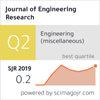用排队法建立两个闭环供应链互动的新型堆叠尔伯格博弈论优化模型
IF 2.2
4区 工程技术
Q3 ENGINEERING, MULTIDISCIPLINARY
引用次数: 0
摘要
供应链协调通常通过合同来实现,但这些合同可能会带来许多问题,如生产和分销协调问题、缺乏整体供应链视角以及长期不兼容性。博弈论是解决这些协调问题的著名方法。本研究旨在评估供应链中工业合作伙伴之间的沟通与合作效率,重点关注随机客户需求。主要目标是通过纳入各种类型的合同,优化拟议供应链的协调。因此,我们对博弈论进行了深入探讨,以找出解决供应链固有协调问题的办法。在这种情况下,提出了一个全面的博弈论公式,以确定供应链成员之间的最佳互动,尤其侧重于需要优化的沟通和协调变量。在这方面,采用了斯塔克尔伯格均衡来寻找最佳解决方案。当客户可以在两个供应链之间进行沟通以做出决策时,所提出的模型结合了排队理论来评估各方面和博弈论。数值结果表明,采用所提出的方法后,整个系统的利润增加了 7%。此外,在不同情况下,分销系统中不同公司之间的合作可为所有合作伙伴带来更高的预期利润。本文章由计算机程序翻译,如有差异,请以英文原文为准。
A novel stackelberg game-theoretic optimization model for interaction between two closed-loop supply chains with a queueing approach
Supply chain coordination is often facilitated through contracts, but these contracts can present numerous issues, such as production and distribution coordination problems, a lack of a holistic supply chain view, and long-term incompatibility. Game theory is a well-known method for finding solutions to these coordination problems. This research aims to evaluate communication and cooperation efficiency among industrial partners in supply chains, with a focus on stochastic customer demand. The primary objective is to optimize the coordination of the proposed supply chain by incorporating various types of contracts. Accordingly, a thorough exploration of game theory is conducted to identify solutions for the coordination problems inherent in supply chains. In this context, a comprehensive game theory formulation is proposed to determine the optimal interaction between supply chain members, with a particular focus on the variables of communication and coordination that need optimization. In this regard, the Stackelberg equilibrium is applied to find the best possible solution. The proposed model combines queuing theory to evaluate aspects and game theory when customers can communicate between two supply chains to make decisions. Numerical results show that implementing the proposed method increased the profit for the entire system by 7%. Moreover, cooperation between different companies in the distribution system can yield a higher expected profit for all partners under different scenarios.
求助全文
通过发布文献求助,成功后即可免费获取论文全文。
去求助
来源期刊

Journal of Engineering Research
ENGINEERING, MULTIDISCIPLINARY-
CiteScore
1.60
自引率
10.00%
发文量
181
审稿时长
20 weeks
期刊介绍:
Journal of Engineering Research (JER) is a international, peer reviewed journal which publishes full length original research papers, reviews, case studies related to all areas of Engineering such as: Civil, Mechanical, Industrial, Electrical, Computer, Chemical, Petroleum, Aerospace, Architectural, Biomedical, Coastal, Environmental, Marine & Ocean, Metallurgical & Materials, software, Surveying, Systems and Manufacturing Engineering. In particular, JER focuses on innovative approaches and methods that contribute to solving the environmental and manufacturing problems, which exist primarily in the Arabian Gulf region and the Middle East countries. Kuwait University used to publish the Journal "Kuwait Journal of Science and Engineering" (ISSN: 1024-8684), which included Science and Engineering articles since 1974. In 2011 the decision was taken to split KJSE into two independent Journals - "Journal of Engineering Research "(JER) and "Kuwait Journal of Science" (KJS).
 求助内容:
求助内容: 应助结果提醒方式:
应助结果提醒方式:


